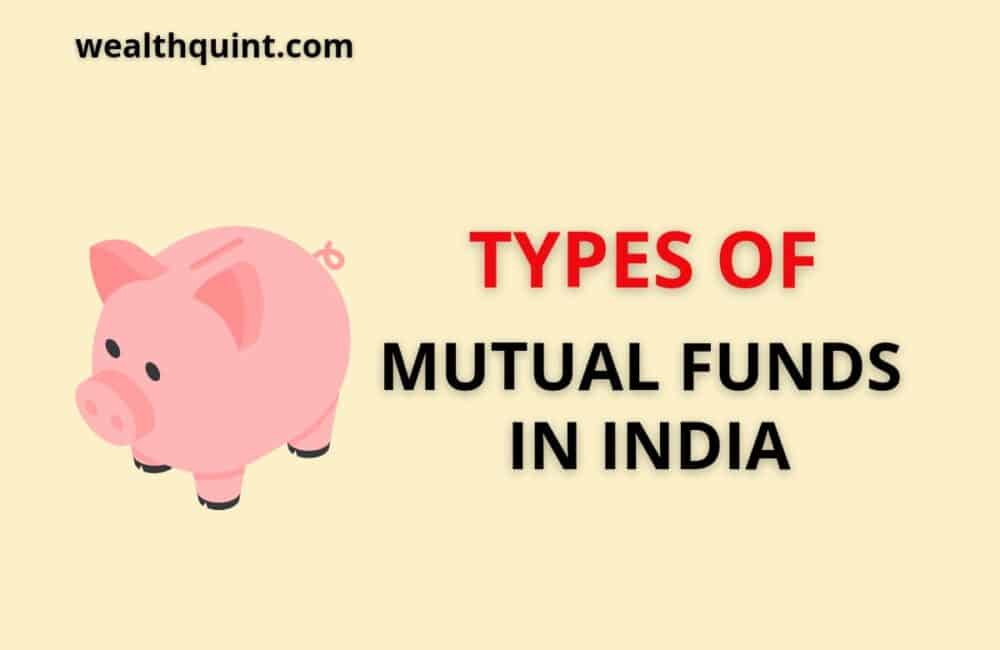“Mutual funds are subject to market risks, please read the offer document carefully… “All of us must have seen this advertisement many times on TV. But what exactly are mutual funds? What are the different types of mutual funds? Let us help you in making an informed decision.
What Is A Mutual Fund?
A mutual fund is money pooled from different investors to invest in financial securities like bonds, stocks, and other assets. There are different types of mutual funds that provide multiple options for investors which help them in taking a risk as per their feasibility.
Usually, money managers operate mutual funds to produce gains for fund investors. Mutual funds are the right choice for people who are looking for professional help in money management with a diversified outlook on risk-return trade off.
In India, mutual funds are regulated by SEBI (Securities and Exchange Board of India) which provides transparent processes in mutual fund portfolio investment.
Recommended: Ultimate Guide to Hedge Funds in India
Types Of Mutual Funds In India:
There are two types of classifications of mutual funds in India.
- Based on investor nature
- Based on investment nature like equities, debt, or a mix of both
Based On Investor Nature:
Open-Ended Funds:
These types of mutual funds do not have a fixed maturity period. Any time an investor can enter or exit the mutual fund investment.
Closed-Ended Funds:
Close-ended funds are listed in the stock exchanges. Usually, an investor can invest in these funds during the Initial Public Offerings time and they can redeem the benefits only after the expiry of the fixed maturity period. Investors cannot exit the investment at their will halfway.
Based On The Nature Of Investment:
Equity Or Growth Mutual Funds:
Equity funds are high-risk mutual funds that also have long-term high return potential. These are the most popular mutual funds preferred during the prime earning stage. They help investors to take part in the stock market.
These are further divided into three categories:
- Sector-Specific Funds
Sector-specific Funds mutual funds are invested in a specific sector which increases the risk factor in these types of mutual funds. These are most suitable for people with high-risk appetites and expecting superior returns.
- Index Funds
Index Funds are best suitable for people who do not want to depend on money managers for mutual fund investment. The index mutual funds follow the same pattern as their index like BSE. These are suitable for investors with a low-risk appetite
- Tax Saving Funds
Tax Saving Funds are also called Equity Linked Saving Schemes as they provide tax benefits to their investors. These mutual funds have a fixed maturity period of 3 years and the investors are eligible for tax deduction under section 80C of the IT Act, 1861.
Liquid Funds Or Money Market Funds
Liquid Funds are the best alternatives for putting money in a savings bank account. These are suitable for people with a low-risk appetite. They offer decent returns in a short period. These are short-term debt money market instruments.
Debt Mutual Funds Or Fixed Income Funds
These are suitable for people with a low-risk appetite with a low and steady return outlook. These mutual funds invest money in government bonds, securities, debentures, etc., The only risk involved is credit risk.
Balanced Mutual Funds
These are a mix of equity and debt investment mutual funds. These are suitable for investors with a medium-risk appetite. The allocation of investment keeps changing with market risks in these balanced funds.
Hybrid Or Monthly Income Plans (MIP)
The only difference between these plans and balanced funds is the equity assets investment is less as compared with that of balanced funds. These are suitable for people with low-risk appetites like retired people who expect steady income monthly.
Gilt Mutual Funds
Gilt mutual funds are pro-government mutual funds that invest in government securities only. They are suitable for investors who do not want credit risk related to their investment. The only risk involved in these mutual funds is high-interest rate risk.
Final Thoughts
Mutual Funds are the easiest forms of investments, and even a student can get started with it for as less as INR 100. To get started, check out popular platforms available on the Internet, that allows you to buy and track mutual funds. Some of these platforms include Groww, Zerodha etc.
Recommended:
Top 20 Finance Companies in India



